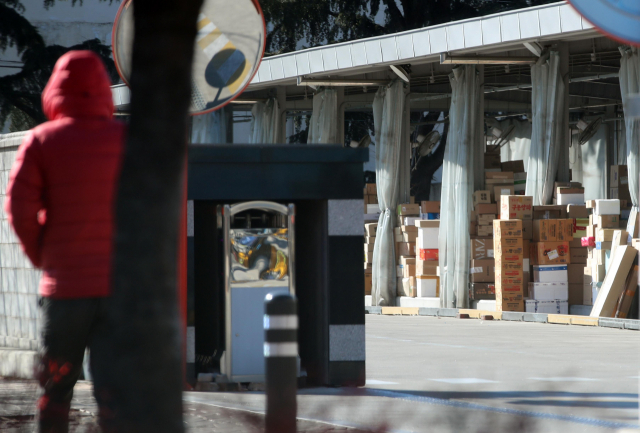A general strike for parcel delivery was prevented by a tripartite agreement, but…
Agreement between the former Euljirowi·courier union
In fact, it contains the purpose of the rate increase
Only the composition of TF for delivery company and agency was agreed
Can’t conclude cost sharing…
 viewer
viewer
The crisis of the general strike of the parcel service union, which was announced on the 29th, was urgently sealed by an agreement between the labor and management, but the social cost of the result was borne by consumers who use the parcel service. On the condition that there is no strike, the contents of the agreement to actually increase the courier fee were entered. As a result, the ruling party became contemptuous as if mediating labor-management conflicts, and shifting the burden of expenses to the people.
In addition, the Democratic Party’s Euljiro Committee and the parcel delivery union announced on the day that the “Agreement on the Inspection of the Implementation of Social Consensus” contained the content that “the improvement of the parcel delivery fee and delivery fee transaction structure will be completed by the end of May,” as possible. Since CJ Logistics, Lotte Global Logistics, and Hanjin Express have agreed to put in 6,000 sorting personnel (4,000, 1,000, and 1,000, respectively) by the 4th of next month, it means that additional labor costs will be covered by an increase in the delivery fee. In the first agreement signed on the 21st through the mediation of the Democratic Party, the courier labor and management agreed to come up with a plan to improve the courier fee and parcel fee transaction structure in the first half of this year. As the agreement on the implementation check was passed at the general meeting of the courier union members, the strike scheduled for that day was withdrawn.
 viewer
viewer
Sorting literally means sorting parcels according to the area in which the driver is in charge. If a courier company such as CJ Logistics categorizes the country’s parcels into regions managed by the agency (old units), the agency should subclass them into smaller areas managed by the driver (dong units). Classification work refers to this subclassification. Originally, a courier driver was in charge of sorting and delivery, but as the volume of logistics increased, sorting jobs often took up more than a third of the total business hours. The union called this sorting job free labor to promote overwork and demanded that a dedicated manpower be employed.
 viewer
viewer
The problem is that the courier, the agent, and the courier are all reluctant to pay for labor costs. If it is a general labor contract relationship, the courier company will bear all the labor costs, but the courier company, the agency owner, and the courier driver are in the consignment contract as equal business operators. In a structure where the courier driver receives an allowance in proportion to the amount of transportation, and the courier company and the agency owner take off the fee, one entity cannot fully bear the cost. As a result of each stakeholder’s refusal of the burden, the cost is eventually passed on to the consumer.
In fact, even with the sorting manpower to be put in by next month, the courier company, the agency owner, and the union are playing a ping-pong game. In the case of CJ Logistics, it was discussed how to divide the classified labor cost into 5 to 3 to 2, but it was decided not to pay the cost for the driver in the process of social consultation. In the end, the labor cost of 4,000 people was the responsibility of the courier company and the agency owner. The two sides only agreed to establish a joint task force (TF) on how to share the cost the day before. It seems to be covered without being able to conclude. An official from CJ Agency Association said, “CJ Logistics is choosing a method of adding a certain cost to the courier service fee.” “It is only about 30% of the calculation including weekly vacation allowance, four major insurance, and overtime pay.” Insisted. The agency believes that the plan to recruit 4,000 people is announced by the courier and the employment method that the agency must conclude for labor contracts is also a problem. Regarding this, CJ Logistics said, “The agency that gives orders to the classified personnel will be the agency.” “If the courier directly hires the courier, there will be problems in violation of labor laws such as illegal dispatch.
The’improvement of the transaction structure’ in the agreement actually means a reorganization of the fee rate, and it is expected that the courier and agency owners will require the courier service to bear the cost. However, since the union sees the separation of the classification work as’reform of the overwork structure’, it is highly likely to go on strike again. The courier conflict has not yet been resolved.
/ Sejong = Reporter Byun Jaehyun [email protected]
< 저작권자 ⓒ 서울경제, 무단 전재 및 재배포 금지 >
